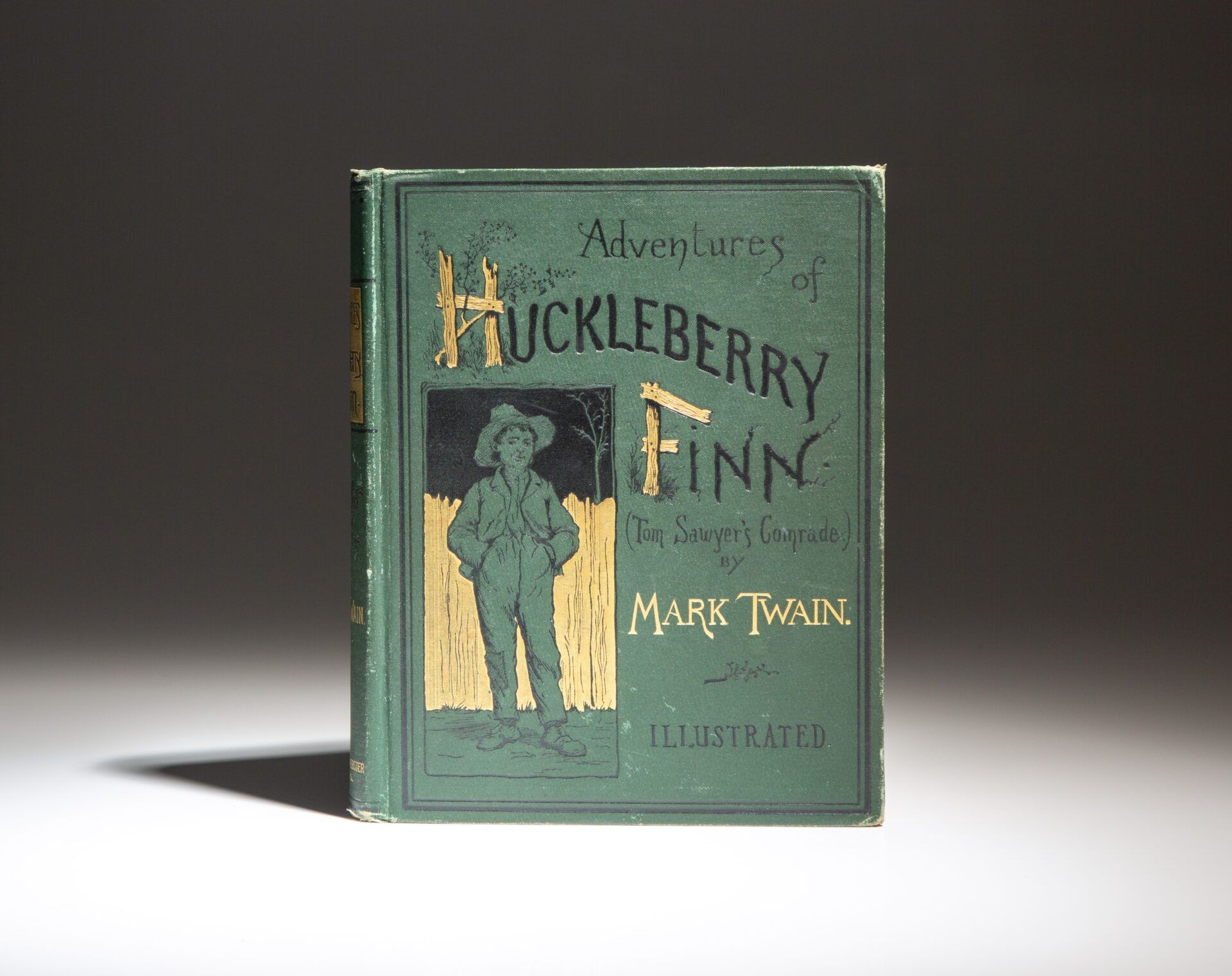
Welcome, fellow bookworms and literary enthusiasts! Today, we embark on an exciting journey into the world of literature with a focus on one of the most beloved and influential novels of all time, “The Adventures of Huckleberry Finn” by Mark Twain. This timeless classic has captivated readers for over a century, taking them on a thrilling ride through the heart of America’s past. As we delve deeper into this remarkable literary work, we uncover a treasure trove of fascinating facts that shed light on its origins, themes, and enduring impact on society. From its controversial reception to its groundbreaking narrative style, there is so much to discover about this iconic piece of American literature. So, grab your virtual life jackets, hop aboard our virtual raft, and let’s set sail on an adventure to uncover 20 captivating facts about “The Adventures of Huckleberry Finn.
Key Takeaways:
- Mark Twain’s “The Adventures of Huckleberry Finn” was published in 1884 and remains a timeless classic in American literature, addressing themes of racism, freedom, and individuality.
- The novel, set along the Mississippi River, features beloved characters and a unique blend of humor and social commentary, making it a significant and enduring piece of American literature.
The Adventures of Huckleberry Finn was first published in 1884.
Mark Twain’s masterpiece, The Adventures of Huckleberry Finn, was initially released in 1884 and has since become a timeless classic in American literature.
The novel is set along the Mississippi River.
The story follows the adventures of Huckleberry Finn and his friend Jim, an escaped slave, as they navigate through the vast and treacherous waters of the Mississippi River in search of freedom.
It is written in the first-person narrative.
Mark Twain expertly crafted the novel from the perspective of Huckleberry Finn himself, providing readers with a unique and immersive reading experience.
Huckleberry Finn is one of the most beloved fictional characters.
Huckleberry Finn’s free-spirited and adventurous nature has captivated readers for generations, making him an iconic character in American literature.
The novel addresses themes of racism and slavery.
Mark Twain fearlessly tackles the sensitive subjects of racism and slavery, sparking important conversations about social justice and equality.
It has faced controversy and censorship.
Due to its depiction of racial themes and language, The Adventures of Huckleberry Finn has been the subject of controversy and censorship throughout its history.
The Adventures of Huckleberry Finn has been widely studied in schools and universities.
As a staple in American literature curriculum, the novel has provided students with valuable insight into the historical and social contexts of the time.
It is regarded as a significant piece of American literature.
The Adventures of Huckleberry Finn is celebrated for its profound impact on American literature, influencing subsequent generations of writers and readers alike.
Mark Twain’s real name was Samuel Clemens.
Under his famous pen name, Mark Twain, Samuel Clemens penned this iconic novel, solidifying his legacy as one of America’s greatest literary figures.
The novel is known for its unique blend of humor and social commentary.
Mark Twain’s witty writing style allows for moments of comedic relief, while simultaneously shedding light on the social issues of the time.
Huckleberry Finn and Tom Sawyer are best friends in the novel.
The Adventures of Huckleberry Finn continues the story of Tom Sawyer, with Huckleberry Finn and Tom remaining close friends throughout their adventures.
Mark Twain considered The Adventures of Huckleberry Finn his greatest work.
Out of all his literary contributions, Mark Twain held The Adventures of Huckleberry Finn in the highest regard, considering it his greatest achievement.
The novel explores themes of freedom and individuality.
As Huckleberry Finn and Jim journey down the river, they search for personal freedom and challenge societal norms, making the novel a powerful exploration of individualism.
The Adventures of Huckleberry Finn was initially met with mixed reviews.
Upon its initial release, the novel garnered a range of responses, with some critics praising Twain’s writing style and social commentary, while others criticized its content.
It has been adapted into numerous films and stage productions.
The enduring popularity of The Adventures of Huckleberry Finn has led to various adaptations, bringing the beloved characters and their adventures to life on screen and stage.
The language used in the novel reflects the vernacular of the time.
Mark Twain’s use of regional dialects and colloquial language adds authenticity to the narrative and enhances the reader’s immersion in the story.
The novel explores the concept of morality.
Huckleberry Finn’s journey down the river forces him to confront his own morality and question the societal norms he has been taught, leading to a deeper exploration of right and wrong.
The Adventures of Huckleberry Finn has been translated into multiple languages.
The global impact of Mark Twain’s novel extends beyond English-speaking countries, with translations allowing readers worldwide to engage with this timeless classic.
Mark Twain drew inspiration from his own experiences along the Mississippi River.
As a riverboat pilot in his youth, Mark Twain drew from his firsthand knowledge of the Mississippi River to paint a vivid and realistic backdrop for the novel.
The novel remains relevant in modern times.
The themes and messages explored in The Adventures of Huckleberry Finn continue to resonate with readers today, highlighting its enduring relevance and literary significance.
Conclusion
In conclusion, The Adventures of Huckleberry Finn by Mark Twain is a timeless classic that continues to captivate readers with its fascinating narrative and engaging characters. Through the journey of Huck Finn and Jim down the Mississippi River, Twain explores important themes such as freedom, morality, and the hypocrisy of society. The novel provides a thought-provoking critique of 19th-century American society and remains highly relevant even in modern times.With its vivid descriptions, witty dialogue, and compelling storytelling, The Adventures of Huckleberry Finn has become a beloved piece of American literature. Mark Twain’s use of regional dialects and his portrayal of complex characters like Huck and Jim further adds to the book’s charm. This iconic novel has left a lasting impact on literature and continues to be studied and celebrated for its profound social commentary and masterful storytelling.In summary, The Adventures of Huckleberry Finn is a must-read for anyone who appreciates thought-provoking literature and insightful social commentary. Its enduring popularity is a testament to its timeless appeal and the enduring legacy of Mark Twain’s genius.
FAQs
Q: Who wrote The Adventures of Huckleberry Finn?
A: The Adventures of Huckleberry Finn was written by Mark Twain, who is considered one of America’s greatest writers.
Q: When was The Adventures of Huckleberry Finn first published?
A: The novel was first published in 1884 in the United States.
Q: What is the setting of The Adventures of Huckleberry Finn?
A: The story is set in the 19th-century American South, primarily along the Mississippi River.
Q: Is The Adventures of Huckleberry Finn based on a true story?
A: While the novel was inspired by Mark Twain’s own experiences and the people he encountered, it is a work of fiction and not based on a specific true story.
Q: What are some major themes explored in The Adventures of Huckleberry Finn?
A: The novel explores themes of freedom, racism, morality, hypocrisy, and the conflict between societal norms and individual conscience.
Q: Why is The Adventures of Huckleberry Finn considered controversial?
A: The novel’s realistic portrayal of slavery and its use of racial slurs have sparked controversy over the years. However, many argue that Twain’s intent was to expose and critique the racist attitudes of his time.
Q: Is The Adventures of Huckleberry Finn suitable for young readers?
A: The novel is commonly taught in schools and can be appreciated by readers of all ages. However, parents and educators should be aware of its mature themes and language.
If you enjoyed learning about Huckleberry Finn's adventures, why not explore more fascinating topics? Delve into the surreal world of a young girl's coming of age in "Valerie and Her Week of Wonders," or revisit another classic novel, "Of Mice and Men," by John Steinbeck. For those captivated by the setting of Twain's novel, discover intriguing facts about the Mississippi River and its role in shaping American history and culture. Each of these subjects offers a unique perspective on the human experience, inviting readers to broaden their horizons and appreciate the power of storytelling.
Was this page helpful?
Our commitment to delivering trustworthy and engaging content is at the heart of what we do. Each fact on our site is contributed by real users like you, bringing a wealth of diverse insights and information. To ensure the highest standards of accuracy and reliability, our dedicated editors meticulously review each submission. This process guarantees that the facts we share are not only fascinating but also credible. Trust in our commitment to quality and authenticity as you explore and learn with us.


